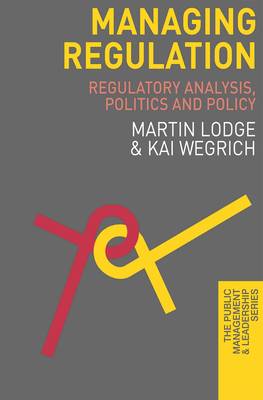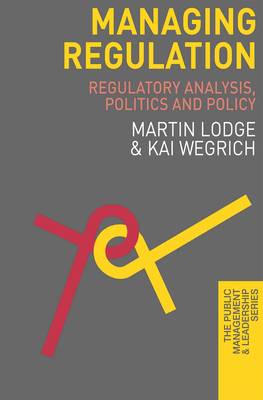
Bedankt voor het vertrouwen het afgelopen jaar! Om jou te bedanken bieden we GRATIS verzending aan op alles gedurende de hele maand januari.
- Afhalen na 1 uur in een winkel met voorraad
- Gratis thuislevering in België
- Ruim aanbod met 7 miljoen producten
Bedankt voor het vertrouwen het afgelopen jaar! Om jou te bedanken bieden we GRATIS verzending aan op alles gedurende de hele maand januari.
- Afhalen na 1 uur in een winkel met voorraad
- Gratis thuislevering in België
- Ruim aanbod met 7 miljoen producten
Zoeken
€ 61,45
+ 122 punten
Uitvoering
Omschrijving
Regulation has become a central aspect of contemporary governance as a result of public management reforms over recent decades. Yet, for all its ubiquity, the ideas of regulation have become increasingly contested. Key failures in the regulation of areas such as financial markets, nuclear power and food safety have revealed limitations in strategies which were once praised as offering superior problem-solving solutions.
This major new text introduces the issues which affect the design and operation of regulatory regimes, and assesses the different regulatory strategies which can be used to deal with real-world challenges. In doing so, it examines the most important areas in regulatory policy and reform, including rule-making and enforcement, better regulation, infrastructure regulation, international regulation and risk regulation. Throughout the book, Martin Lodge and Kai Wegrich discuss a range of hypothetical and real-world examples to illustrate key issues, options and trade-offs, and to encourage readers to think critically and creatively about the regulatory options which are available. Drawing on the most up-to-date research, this text provides a clear and useful toolkit for thinking analytically about regulation.Specificaties
Betrokkenen
- Auteur(s):
- Uitgeverij:
Inhoud
- Aantal bladzijden:
- 288
- Taal:
- Engels
- Reeks:
- Reeksnummer:
- nr. 12
Eigenschappen
- Productcode (EAN):
- 9780230298804
- Verschijningsdatum:
- 29/06/2012
- Uitvoering:
- Paperback
- Formaat:
- Trade paperback (VS)
- Afmetingen:
- 155 mm x 231 mm
- Gewicht:
- 430 g

Alleen bij Standaard Boekhandel
+ 122 punten op je klantenkaart van Standaard Boekhandel
Beoordelingen
We publiceren alleen reviews die voldoen aan de voorwaarden voor reviews. Bekijk onze voorwaarden voor reviews.











